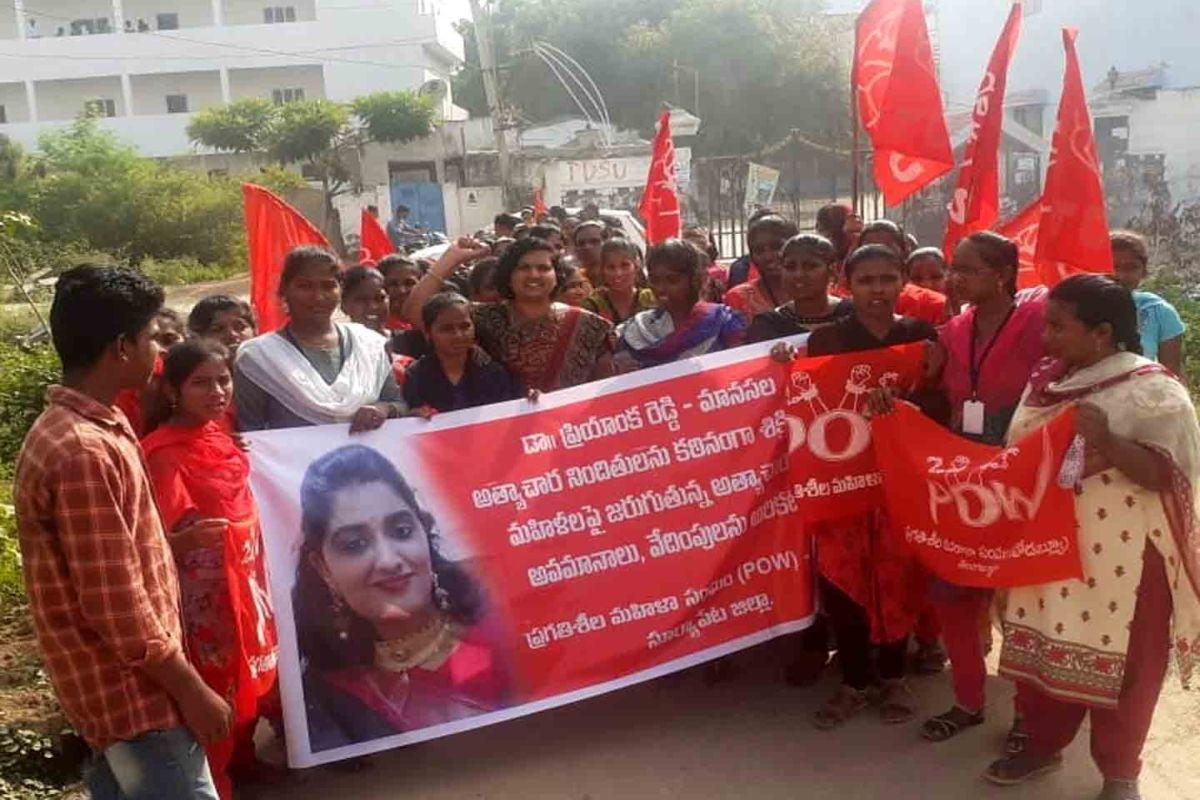Indian society is more or less inured to sexual violence against women but every once in a while, a particularly brutal case shakes the nation’s conscience, prompting an outpouring of anger and outrage. In December 2012, a 23-yearold paramedical student was gangraped, brutalised in a bus and then left to die on the road. She passed away a few days later in a Singapore hospital where she was flown by a government at the receiving end of people’s wrath that erupted on the streets of the Capital.
Now seven years later, the horrific gangrape and murder of a Hyderabad veterinarian has again evoked national outrage. There is a familiar pattern to the public protests, the calls for lynching or castrating the rapists from parliamentarians, who are expected to air more measured opinions, and the platitudes mouthed by those in power about setting up fast track courts and ensuring speedy justice.
There are also the usual misogynistic statements about how women court danger by staying out or working late. The fact is that new and stricter laws, that came into effect after the 2012 incident, have not acted as a deterrent; the judicial process is still too long-drawn-out as pendency of cases relating to sexual violence increases, and policing is woefully inadequate even in the metros, let alone rural and semi-urban India.
It is not surprising that the Hyderabad victim’s family had to run from one police station to another to register a complaint as there was a bureaucratic problem over jurisdiction. Also, rape survivors are very often shamed into silence as a patriarchal society attaches the stigma of the heinous act to the woman. India is considered to be among the most dangerous countries as far as sexual violence against women is considered. According to National Crime Records Bureau statistics, a woman is raped every 20 minutes in India.
Urgent action is required to make the country safer for females. Harsher laws have not made an iota of difference as crimes against women only record a staggering increase. Change has to be more deep-seated; it could involve a nationwide educational campaign to alter the patriarchal mindset and inculcate respect for girls and women among young boys at home and in educational institutions. Puritanical objections to incorporating sex education in the school curriculum have to be rejected outright to foster a healthy attitude to the opposite sex.
Beti Bachao Beti Padhao cannot pay mere lip service to the girl child’s cause; it has to encompass complete freedom of her mind and body. She must be free to follow her heart without fear of repercussions. The change may be slow but it must happen if India is to hold its head high in the comity of nations. A country, where over half the population is not safe on the streets after dark, cannot be the role model for a modern, vibrant democracy.












